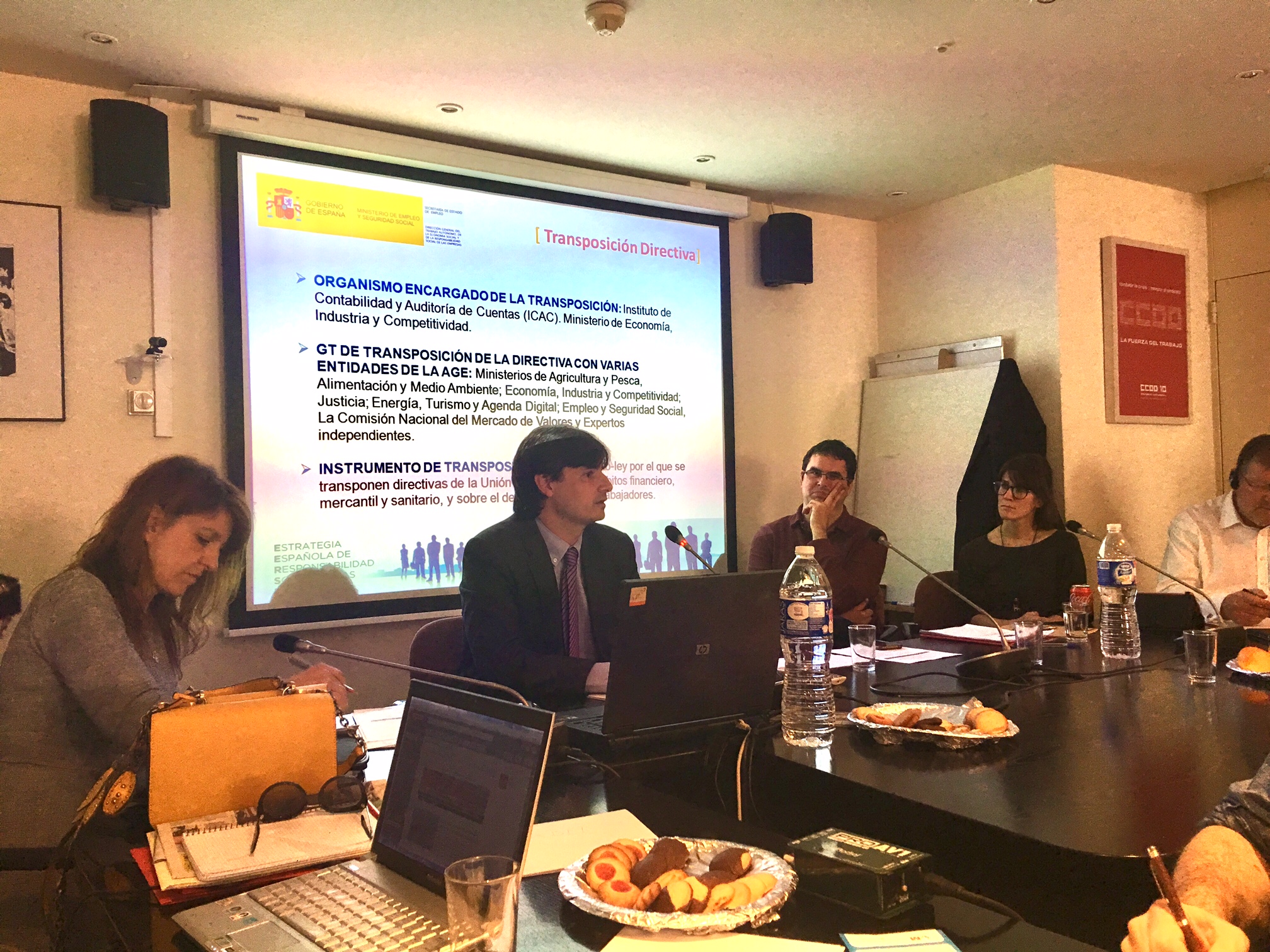“We have to build capacities to deal with the complexities of Non-Financial Information”

Corporate Social Responsibility (CSR) once started as a marketing tool specialized in producing high gloss brochures praising benefits of companies. For good reasons Greenwashing was soon established as a term. Lately the focus has shifted though: Non-Financial Information (NFI) promises more objectivity and binding character. This is mainly because investors and stock markets started including it in their equations. NFI of course could be a valuable tool for workers representatives as well. But until now there was still much room for slack in the non-uniform reporting standards – and almost never the possibility to influence reporting. The Directive 2014/95/EU has the potential to change this.
From the fiscal year 2017 onwards an estimated 6.000 companies in Europe are obliged to publish NFI-Reports, yielding a great chance and a big challenge at the same time. “The transposition of the EU-Directive into national law has to be monitored and accompanied closely by trade unions to make sure worker interests are taken into account.” urged José Carlos González Lorente at an expert meeting in Madrid. González Lorente is responsible for Sustainability at the Federation Services CCOO and member of the national council of CSR (CERSE). CCOO and their research institute ISTAS hosted the meeting with more than 30 experts from 12 European countries. “We therefore have to build capacities to be able to deal with the complexities of Non-Financial Information.” continued González Lorente his appeal. This is the mission of the project DimasoLab which had organised the meeting.
With DimasoLab the German based organisation Arbeit und Leben NRW has started a European network of NFI experts related to unions. It is financially supported by the European Union and aims at improving knowledge about the transposition of the directive and to assess its impact on labour relations. The project is running until March 2018 and will provide impulses for further action. The findings will be discussed with union representatives and experts from NGOs at a validation conference at Brussels. In January 2018 they will then be presented to a broader audience at a final conference.
“Improved transparency gives trade unions one more possibility to effectively engage for more social equity. We must put this information to use and articulate the interests of all stakeholders in our society – but employees in particular – loud and clear.” demands Peter Scherrer, Deputy General Secretary of the European Trade Union Confederation (ETUC), who opened the meeting at Madrid. Kirstine Drew added to this perspective. “Trade unions have a unique opportunity to shape the content of reporting standards participating in the technical working groups of the Global Reporting Initiative (GRI). They can also participate in the GRI's governance bodies.” she underlined the need for trade unions to be involved at all stages. Drew is part of the Trade Union Advisory Committed to the OECD (TUAC) and labour coordinator for the GRI.
First results in DimasoLab show that GRI is the most widely used reporting standard in Europe. Some large companies still claim that sustainability reporting would be too much of a burden. For them Juan Manuel Sánchez-Terán Lledó had good news. “Some small city councils in Spain report according to GRI G3 Standards, which is like an AAA rating. If they manage to do so this should not be a problem for companies either, even if reporting is carried out at high standards.” reported Sánchez-Terán Lledó who represented the Spanish Ministry of Employment and Social Security at the meeting.
If you would like to find out more about “DimasoLab – Directive 2014/95/EU – Impact Assessment of the new Directive on Labour Relations” please contact:
Anna Kaliga (kaliga@aulnrw.de) or Alexander Oberdieck (oberdieck@aulnrw.de)







